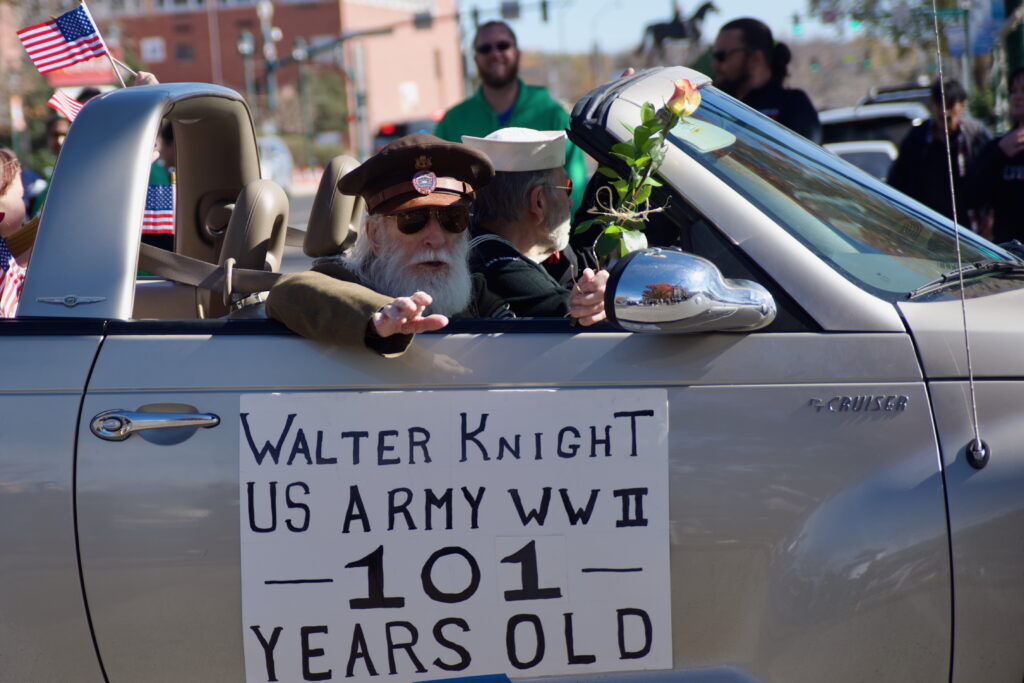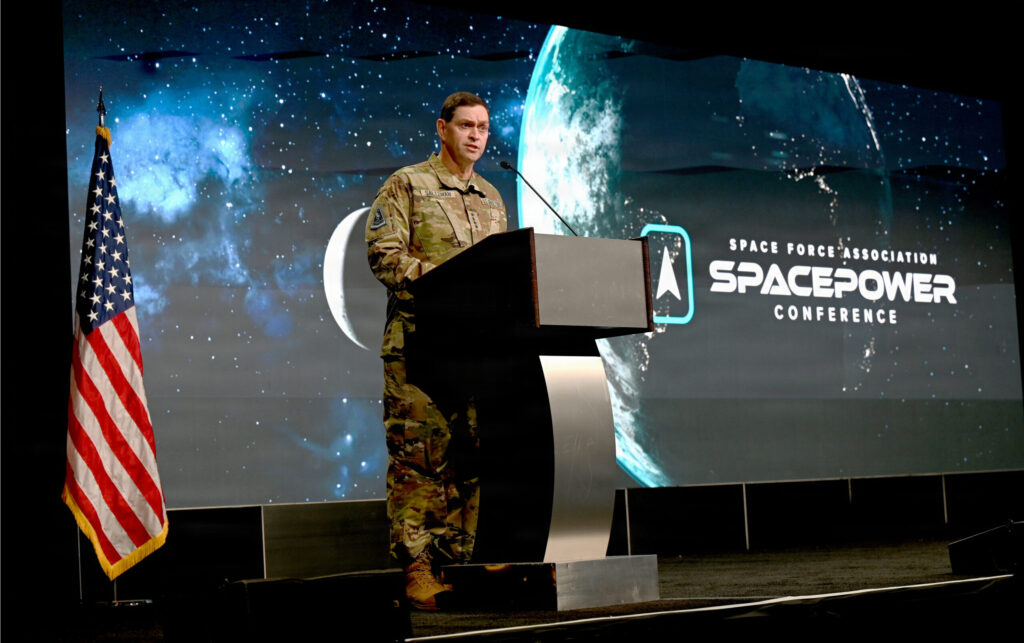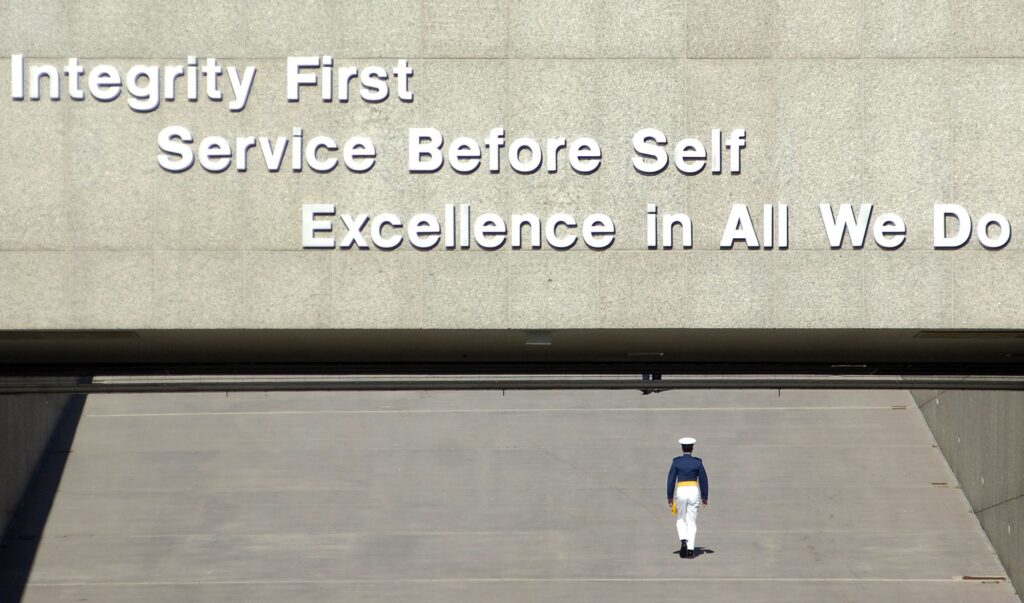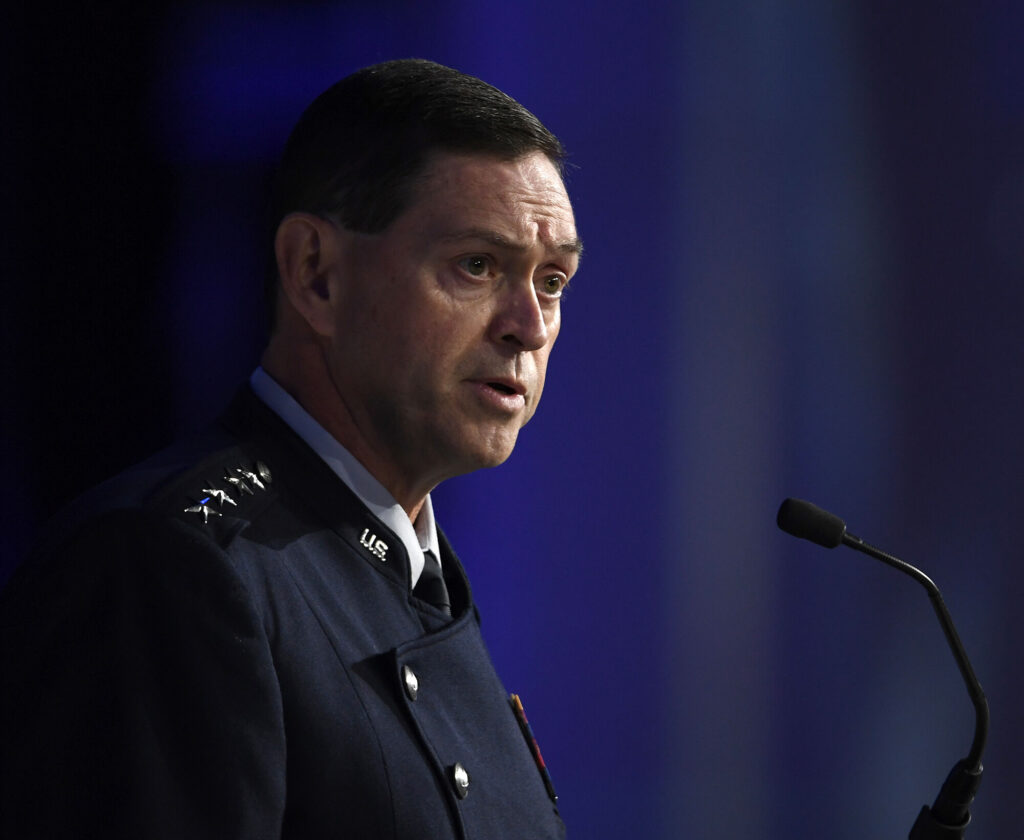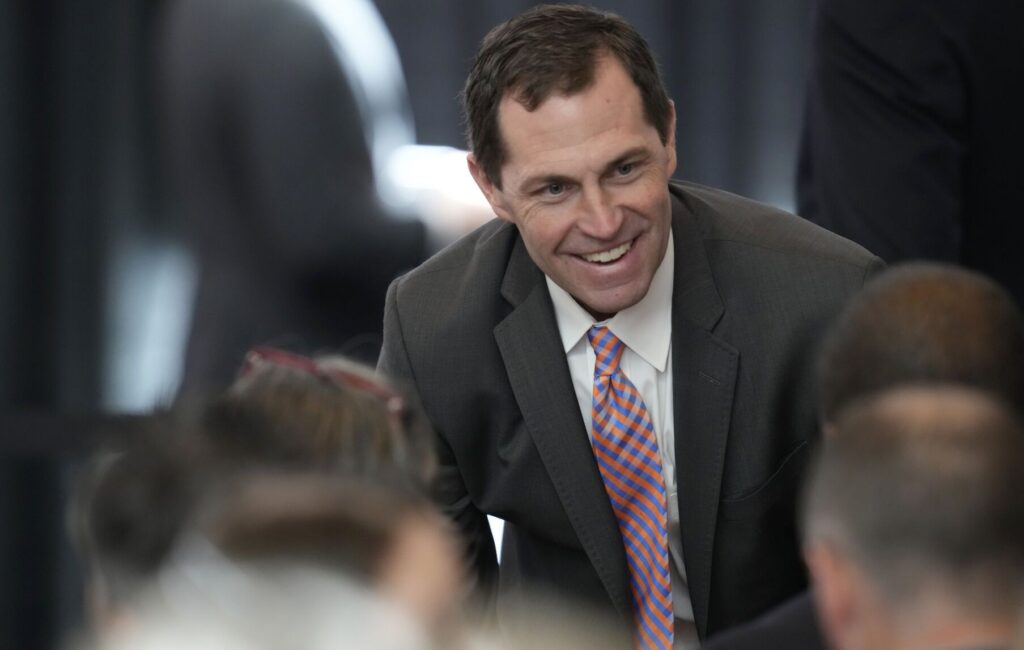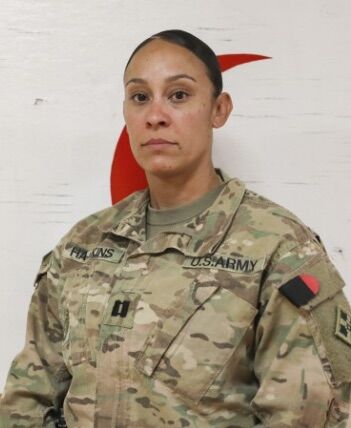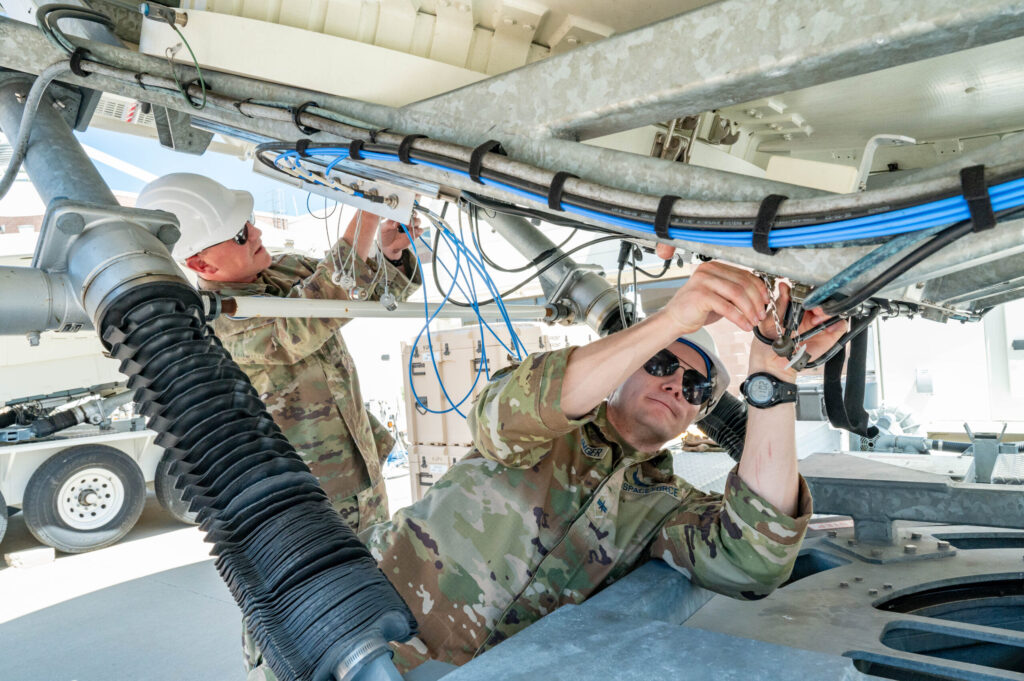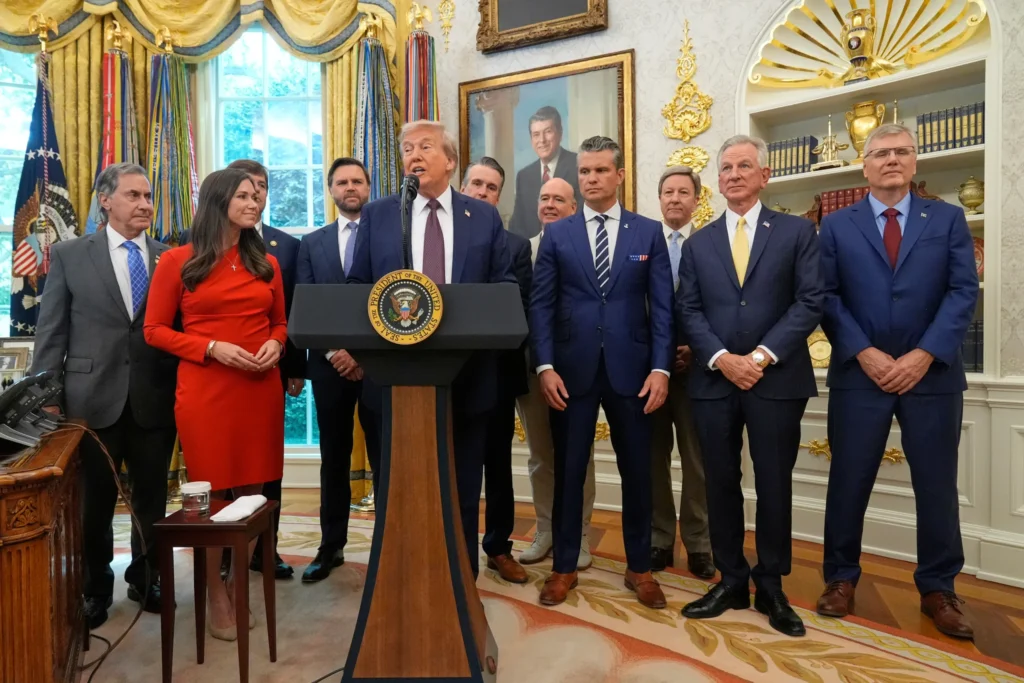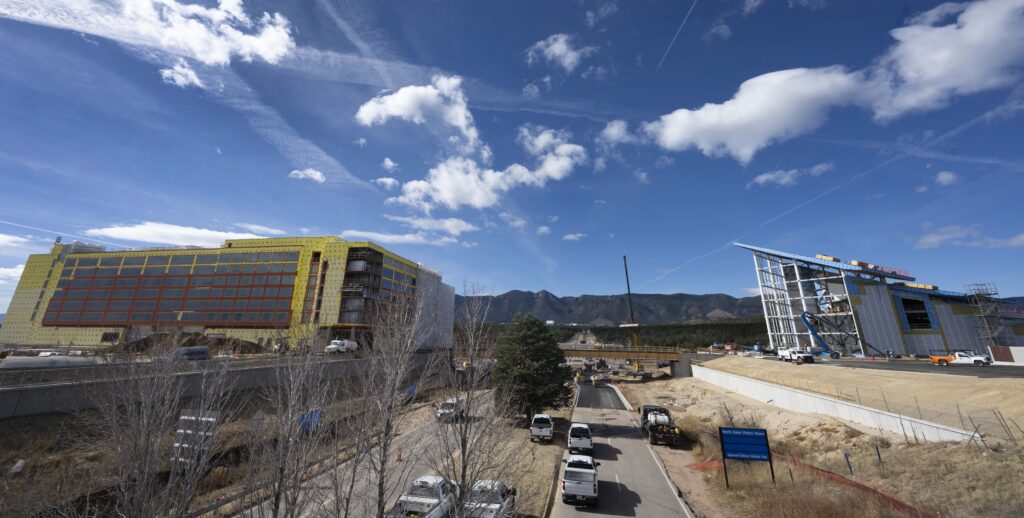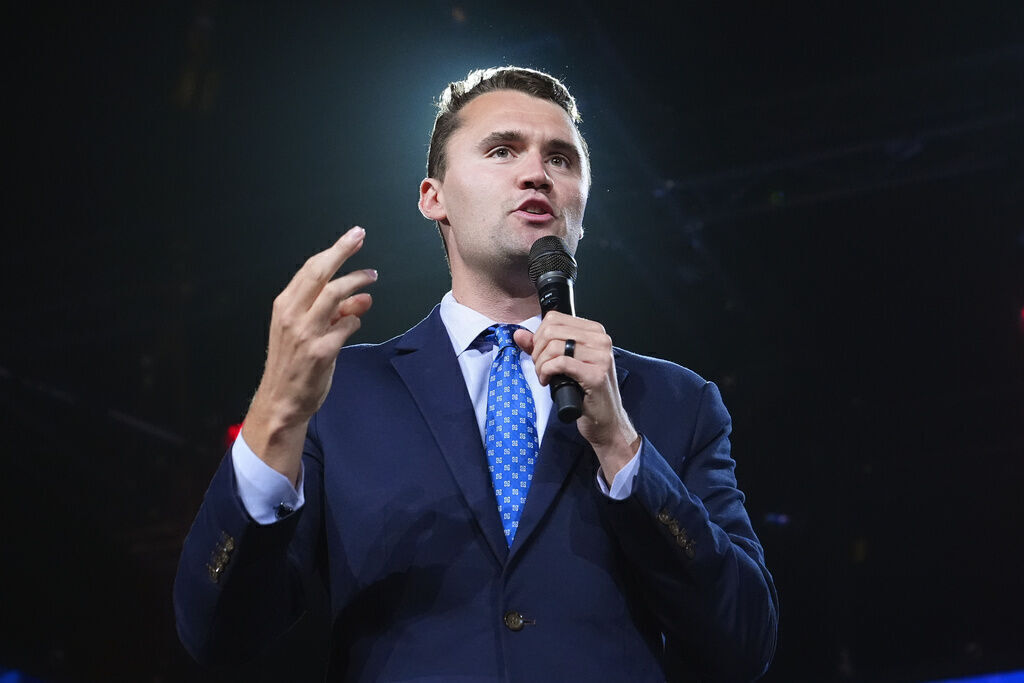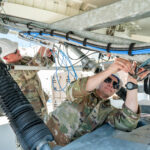At 101, Colorado Springs WWII medic honors those lost in the Pacific
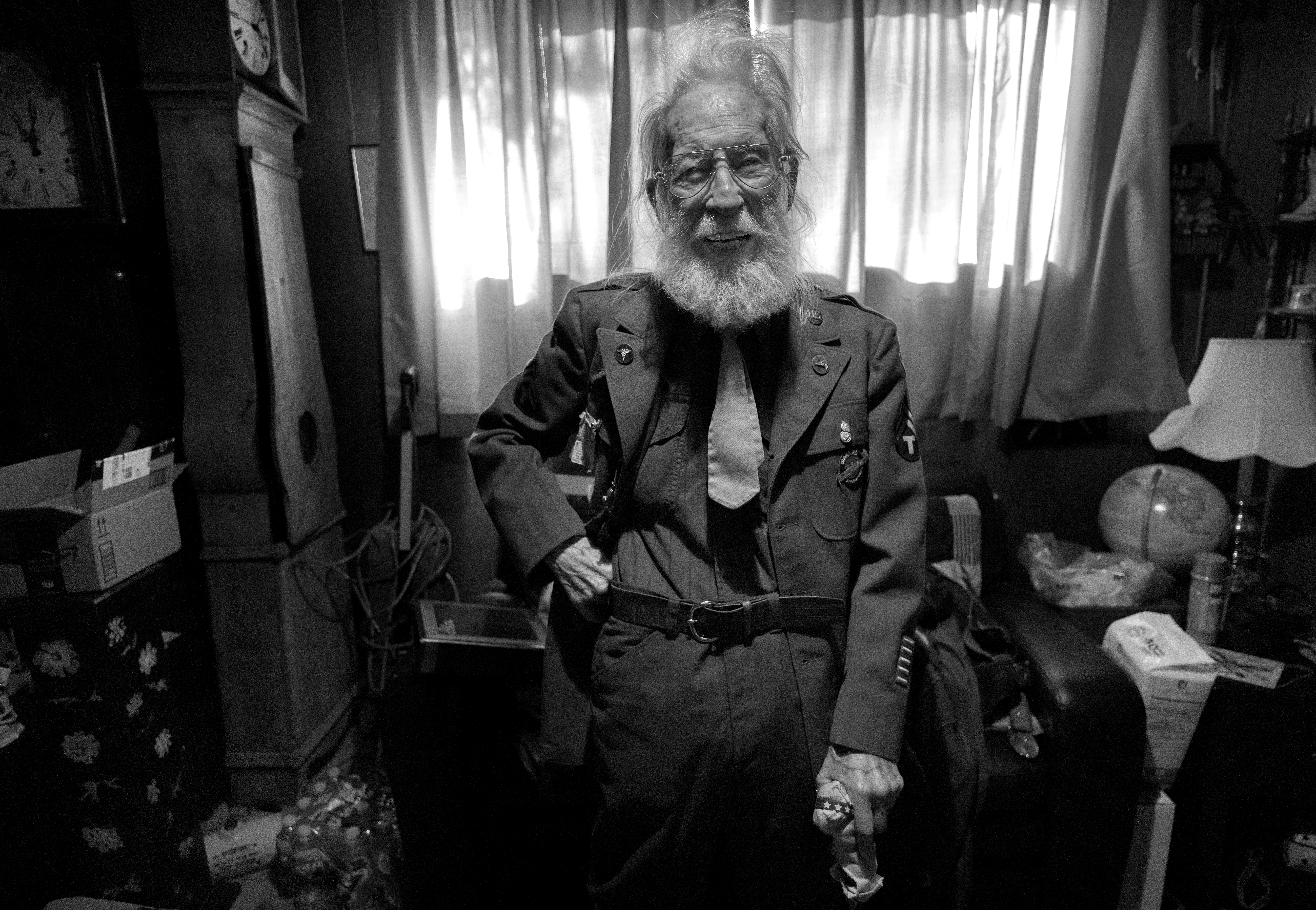
Walter Knight left for the Pacific Theater of World War II in 1943, armed with an Army medic bag instead of a rifle.
He got selected for the job in part because he had some experience working with patients, transporting them around the Mayo Clinic in Rochester, Minn., his hometown.
While caring for soldiers during the war, Knight was assigned terminal cases and focused on keeping men as comfortable as possible to the end.
“I would talk to them eye to eye until they were gone,” he said.
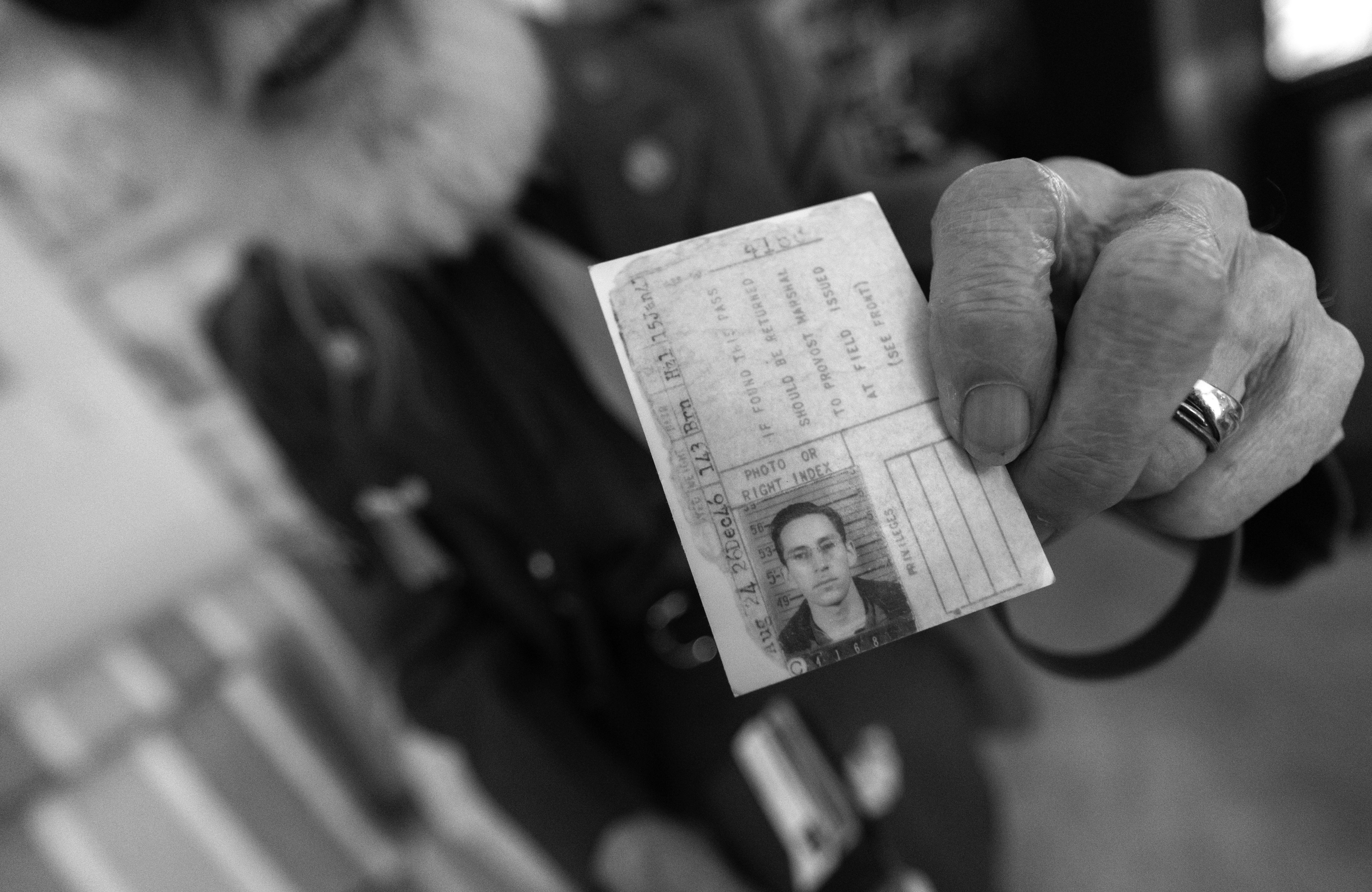
It was a job that came with a lot of deathbed promises – to remember men when he returned to his life in the states. He said that’s the reason he has always participated in the Veterans Day Parade.
This year, at 101, Knight waved to the parade’s crowd in his convertible PT Cruiser.
While Knight’s work as a medic was dark, reflecting on it 80 years later, he can also evoke images of the absurd.
Knight and about 1,400 other troops traveled at least a portion of the Pacific in a Dutch freighter, with only two lifeboats tied to the mast.
“It looked like they had just got it out of the junkyard,” he said.
Its top speed was six knots, a pace Knight described as “putt-putting along.”
For breakfast on board, they were served a cup of coffee and a single egg, he recalled.
During his 28 months in the Pacific, he served on islands, including Saipan in the Marianas, but often the medics were unaware of which island they were working on, his son Michael Knight said.
Going home to the States
After Japan announced its surrender in August 1945, Knight said he was eager to get home to his wife in Denver. But his would-be replacements kept getting transferred elsewhere.
So, Knight got a potential replacement assigned to the bunk right beside his and tried not to let him out of his sight, to help ensure the 40-year-old draftee from California would take over his duties.
“When I went to the latrine, he went to the latrine and I kept that up until they accepted him for my replacement,” Knight said. By that point, Knight was working as a cook, his son Michael said.
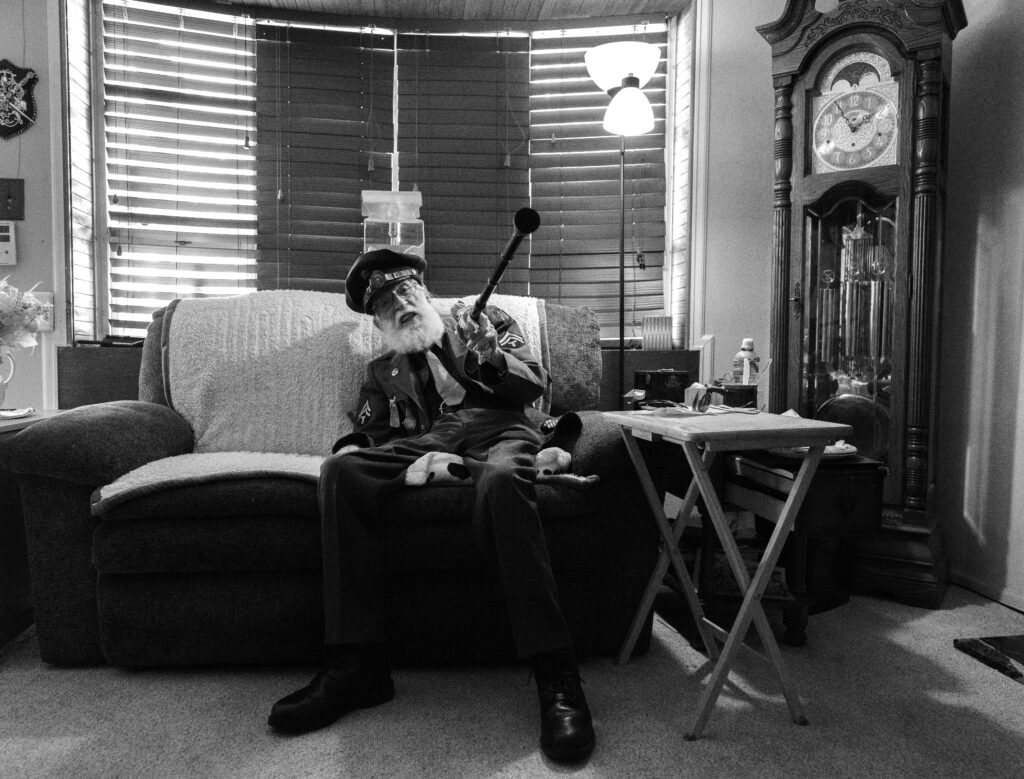
Knight got back to Denver in January 1946 and when a taxi dropped him off in front of his wife’s apartment, he sat on top of a duffel bag for a while deciding whether to knock on the door. The two had only been married for 10 days before he deployed.
“I finally went over and knocked on that door, and that was the strangest thing in the whole world,” he recalled. Walter and Cecelia Knight were married for 28 years before she died from cancer. The two had four children, two girls and two boys.
A career in time
He reflected on his service and his homecoming on an afternoon in late October, wearing his dark green Army uniform that he had personalized, with the obituary of a close friend pinned to the chest. On his hat, he sported a medallion made by his son. The medallion memorializes the 17 days of hard labor he served as punishment for leaving a base in Denver without proper permission to meet up with his wife on her birthday before he deployed.
He told the stories at home, surrounded by reminders of the passion he pursued after the Army. An unknown number of clocks, including around nine grandfather clocks, decorate the house in an untempered celebration of time. It’s beautiful rather than overwhelming, because not all of them tick and chime.
Knight said he was inspired to pursue a career in watches as a kid after seeing craftsmen at work inside, sheltered from the brutal Minnesota winters.
When he got back from the war, he applied at what was then the American Academy of Horology. Initially, he was told the school was at capacity for two years, but he got in early when a space opened up.
His first job was working for the railroad in Raton, N.M., where he earned $70 a week in 1949 maintaining pocket watches for railroad workers who were required to have their watches cleaned once a year.
From Raton, he moved to Colorado Springs to work for another watchmaker. But Knight said he quit that job in frustration when the man’s business declined because he was drinking and he couldn’t pay Knight a living wage.
Knight put all of his tools in a clothing box after quitting and walked out.
“I thought Knight, ‘What the hell have you done? You got family, you got the house,’” he recalled.
So he got in touch with a friend in the banking industry to ask him about a space to open a jewelry store. The man told him he could move into a bank-owned storefront on Cascade Avenue in 1951 .
Walter Knight’s son, Michael Knight, now 76, learned to love clocks in his father’s shop, a career that started with an alarm clock his dad gave him to rebuild.
“I was always with my dad from the time I was 8 years old … I was at the store, working, making money, buying stuff,” he said, noting he earned enough to buy a 1963 Corvette when he was 17.
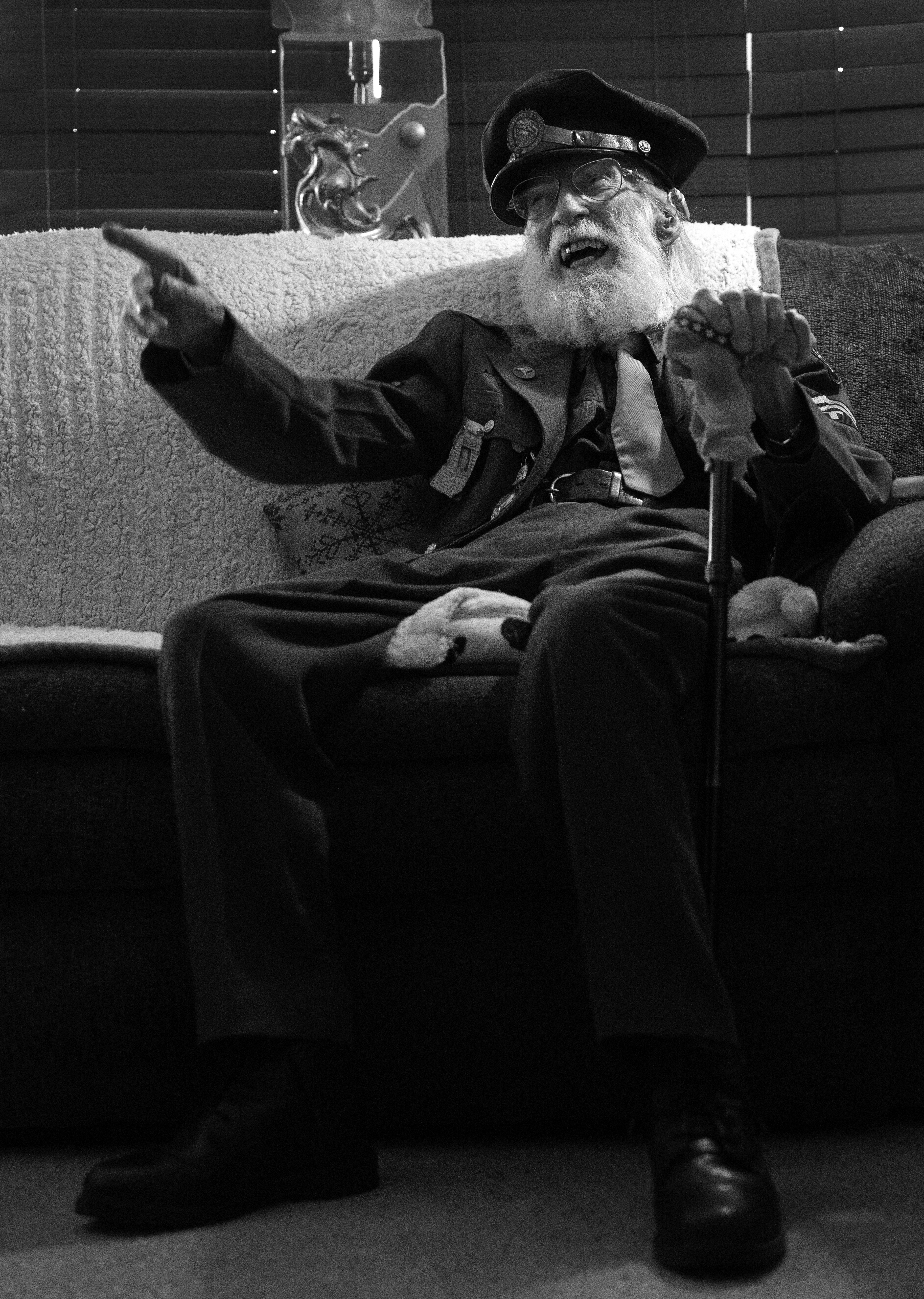
When Walter was 52 in 1976, he sold the business to Michael and retired.
But about five years later, he came back to work as an employee in the shop that specializes in high-end watches. He was at his workbench fairly regularly up until about five years ago, Michael said.
Michael moved the business to its current location at 19 ½ E. Kiowa, transforming it into a cozy space with wood-paneled walls and seats salvaged from the Burns Theater, which was torn down in 1973. Walter also salvaged brick and marble from the theater formerly on Pikes Peak Avenue to build a two-way fireplace in his home.
Now Michael is working at the shop with the next generation of watchmakers: an apprentice retiring from the Air Force and a 21-year-old who recently graduated to watchmaker, Micah Regner.
Regner, like both Knights, loves the mechanical watches that the shop specializes in.
“It’s nice to just see something that’s been there long before you and see that it’s going to be there long past you,” he said.
Fulfilling a promise
Outside of work, Michael and Walter Knight would ride motorcycles together and run together.
“We did everything like buddies, not really like father and son,” Michael said.
When Walter was 75, Michael was 50 and Michael’s daughter was 25, they all competed in the Pikes Peak Marathon together.
Walter Knight caught the running bug as a preteen and would run with his friends out to an airport about a distance of about four miles and he credits a lifetime of running for keeping him healthy.
In his late 80s, he would still regularly go dancing at the senior center and that’s where he planned to meet a lady his son had told him about. He had been a widower for decades and had no interest in remarrying.
The woman, a Rolex watch collector, had been friends with Michael and he told her that she needed to meet his father. After a lengthy first marriage of her own that ended when her husband died of cancer, the transplant from California said she wasn’t interested in a relationship. But she agreed to meet Walter.
Walter told her to look for him in a red sweater at the senior center, but it was too hot for the sweater so he changed into a blue one, reasoning she would spot his long pony tail instead.
Walter’s friend noticed he wasn’t dancing and came over to chat with him and ask him if he was waiting for someone. Walter said he was, but now he was questioning whether she was coming. His friend, who organized the dance, said there was only one non-regular in the room and he would go talk with her.
“So Harry comes dancing down with her, and he put her hand in mine, and he says, ‘Nancy, this is Wally.’ I will never forget those beautiful four words,” Walter said.
They were married in Las Vegas and the two haven’t spent a day apart in 12 years.
In the early years of their marriage they traveled extensively going on cruises to destinations such as the Caribbean and Alaska. While they were 16 years apart, it was like there was no age difference, Nancy Knight said. During and after the pandemic, the two have slowed down a little.
Now Michael visits his dad at home Mondays instead of seeing him in the shop to chat about favorite memories, like when Walter at 12 drove an old Ford around Rochester with other kids laying on the fenders with flashlights because it didn’t have an electrical system.
For Walter, it’s been a life that’s let him fulfill his promises to so many dying soldiers who told him: “Enjoy life back in the States. Especially you Knight, a married man, have children and think of us,” he recalled.
